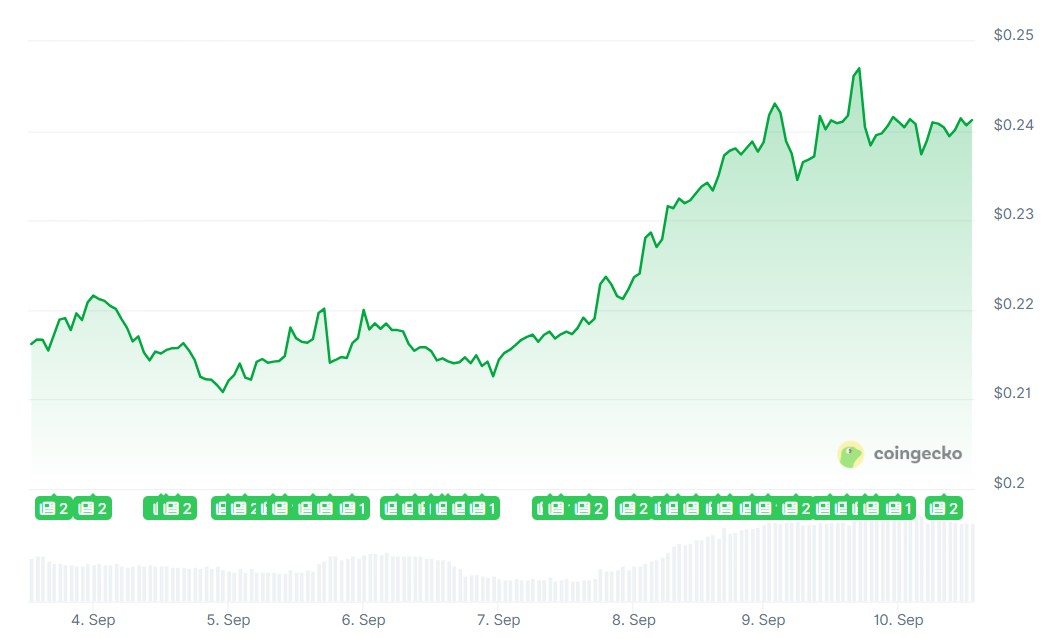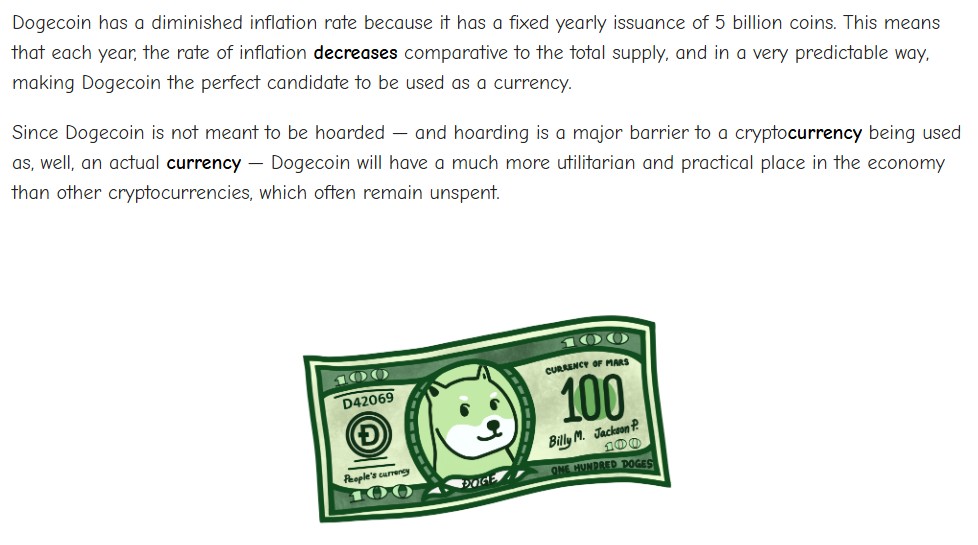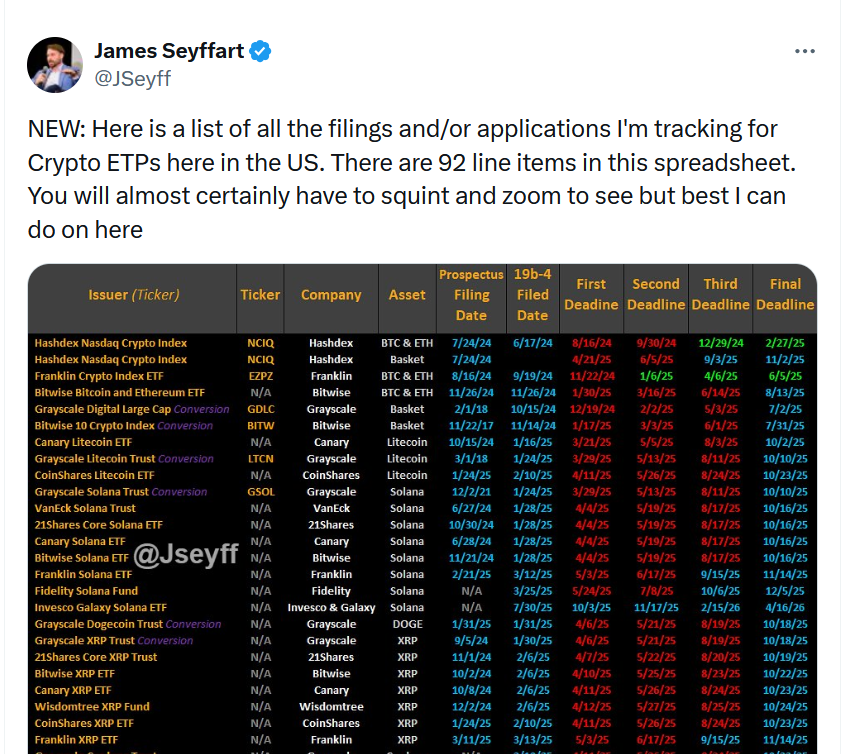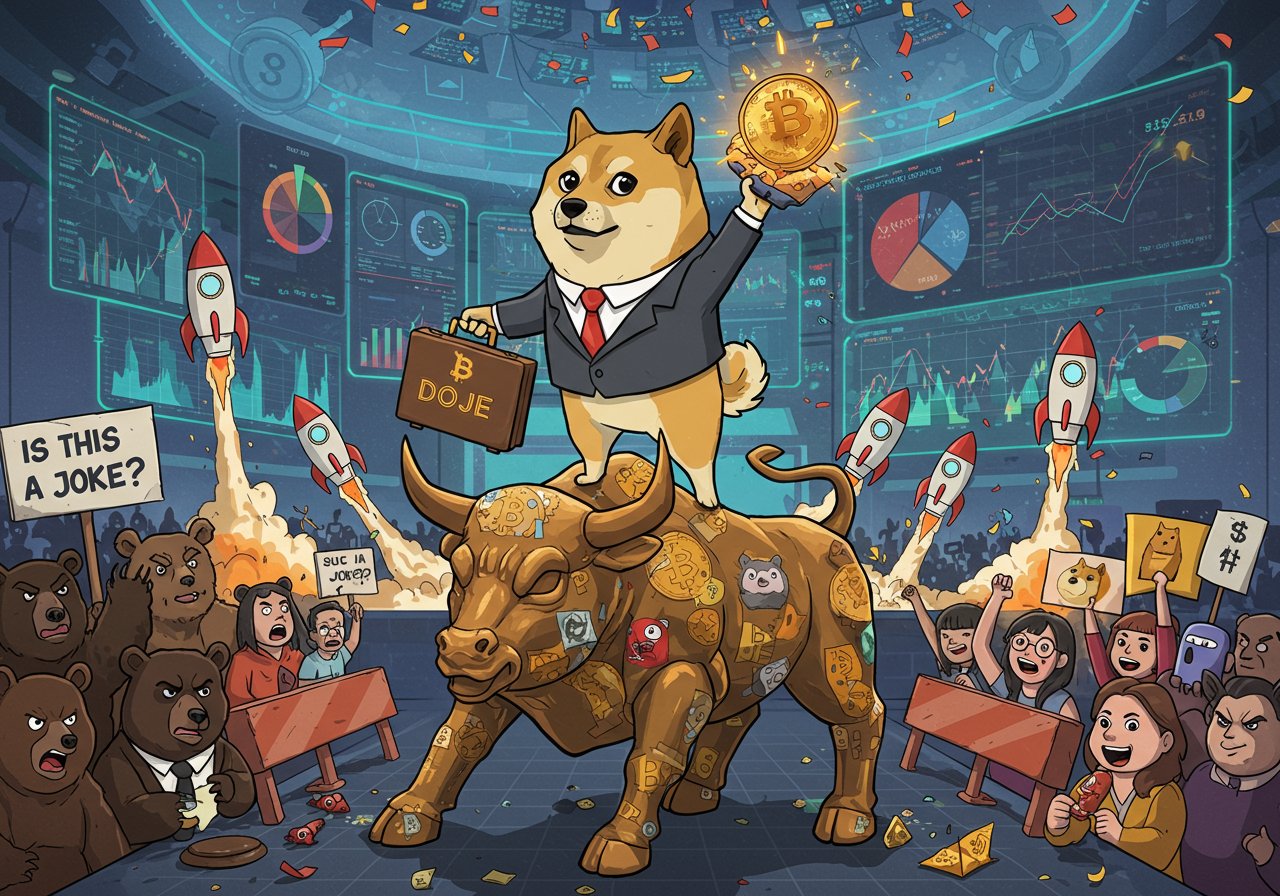
The Dogecoin ETF: A New Chapter for Crypto?
The cryptocurrency world is abuzz with the upcoming launch of the Rex-Osprey Dogecoin ETF (DOJE), a development that has ignited a fierce debate. This marks a significant step for a cryptocurrency born as a joke, but its entry into the regulated financial space raises critical questions about the future of digital assets.
Speculation vs. Legitimacy
The core of the controversy lies in whether the Dogecoin ETF represents a victory for community-driven cryptocurrencies or a concerning embrace of speculation. Critics argue that an ETF for a memecoin institutionalizes a high-risk asset, especially when investors can purchase Dogecoin directly with potentially lower fees. This perspective highlights the inherent volatility and unpredictable nature of meme-based cryptocurrencies, questioning their suitability for traditional investment vehicles.
The Regulatory Framework
Unlike Bitcoin ETFs, which have been approved under the Securities Act of 1933, the Dogecoin ETF falls under the Investment Company Act of 1940. This framework, often used for mutual funds, necessitates diversification and restricts single-asset concentration. DOJE achieves exposure through a Cayman Islands subsidiary and derivatives. This approach, while meeting regulatory requirements, adds complexity and potential risk factors for investors.
A Wider Perspective on Market Dynamics
Proponents of the Dogecoin ETF see it differently, highlighting its potential to legitimize the cryptocurrency within the traditional financial system. They argue that the ETF provides institutional investors with a familiar and regulated way to gain exposure to Dogecoin. Furthermore, some analysts suggest that Dogecoin‘s success reflects the power of community engagement, demonstrating that social momentum can be a significant factor in driving asset adoption, a signal that regulators may be taking notice of social momentum as much as market cap.
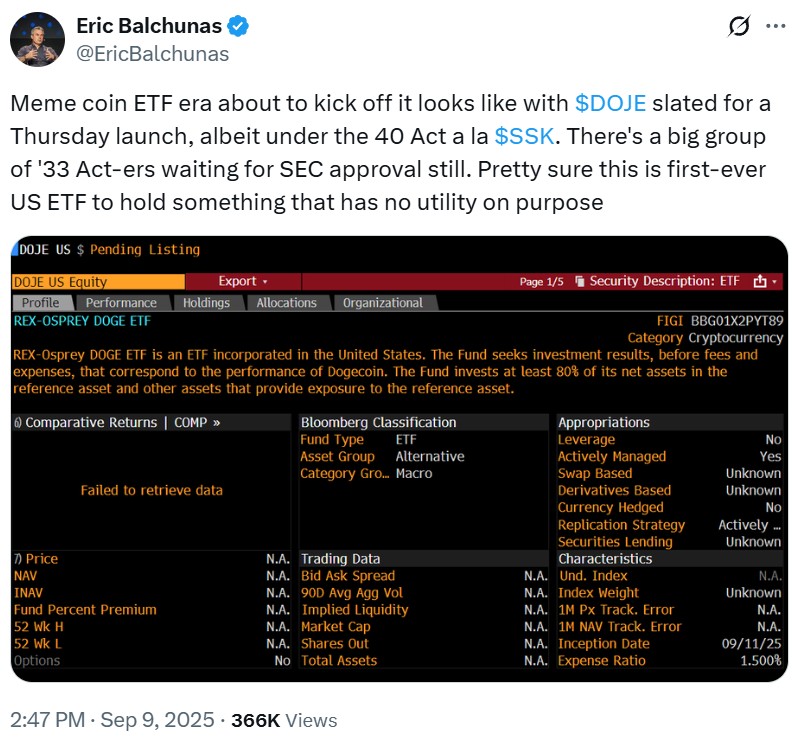
The Future of Meme Coins and ETFs
The launch of DOJE may be just the beginning. Other memecoins, such as Trump (TRUMP) and Bonk (BONK), have also filed for ETF applications. This trend raises questions about the future of the ETF landscape and the potential for a flood of similar products. While regulated wrappers can offer increased accessibility and investor protection, they also create a pathway for assets that are inherently risky and volatile.
The Irony and the Implications
The fact that Dogecoin, initially intended as a parody, is now leading the charge into the ETF space is not lost on anyone. This situation underscores the complex and evolving nature of the cryptocurrency market, where innovation, speculation, and community-driven movements often intersect. The success of the Dogecoin ETF won’t answer whether memes belong in serious markets, but it shows that regulators and investors alike are willing to treat them as if they do, which could have significant implications for the entire industry.
